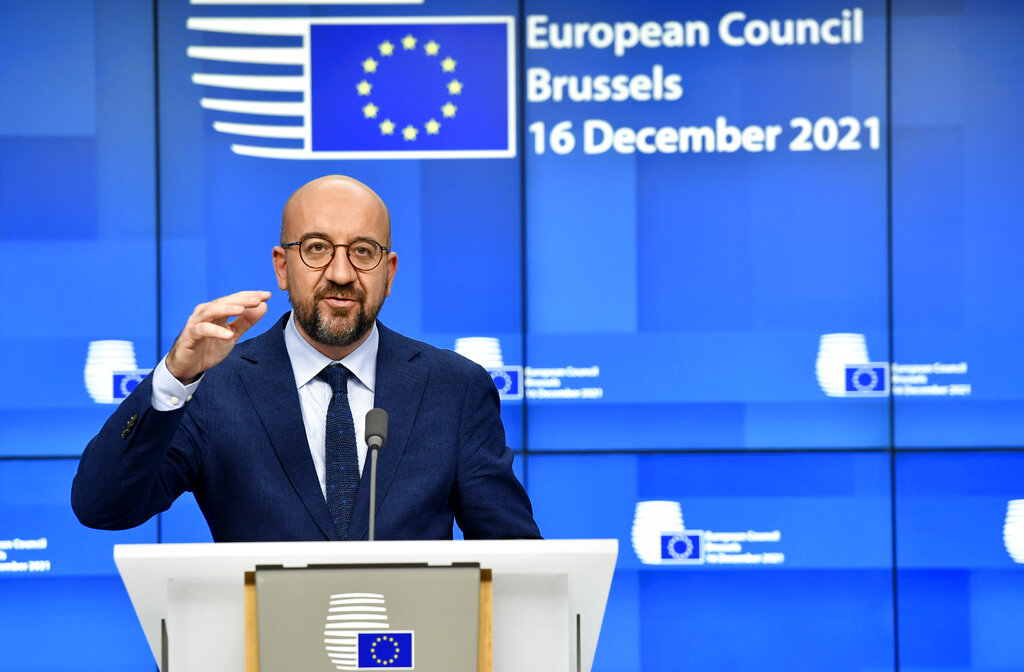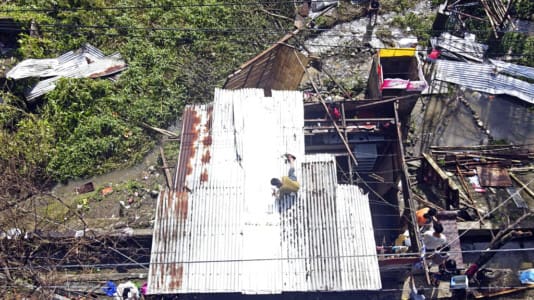The European Union’s final summit of the year had been poised to drag on long into the weekend, with a desperate EU diplomat already joking to Politico by Thursday evening that its correspondents should have brought their sleeping bags.
The suggestion, however, proved to be unnecessary, as plans to discuss reform of the bloc’s energy market were cut short in the middle of the night, with EU leaders predictably failing to reach an agreement on how to address Europe’s soaring energy prices.
President of the European Council Charles Michel even had to suspend the debate at one point on Thursday to give EU leaders the opportunity to address other key issues facing the bloc and ensure that the summit was at least somewhat productive.
In the concluding press conference, Michel began his comments by offering tough talk on Russia, a futile attempt at drawing attention away from the bloc’s own failure to resolve the energy crisis. The European Council president vowed to crack down on Russia, threatening “massive consequences” if the nation escalated its military action against Ukraine. In doing so, the European Union failed to acknowledge its own impotence on the word political stage. In the case of Russia, it is not attempting to intimidate a third world nation desperate for EU development funds here, but a great power.
It has been obvious for years that the European Union cannot even deal with the conflicts in its own back yard, of which this summit’s inability to resolve the energy crisis demonstrates, and yet the bloc persists with these empty threats to Russia.
Putin must be quaking in his boots.
The problem that must now be addressed is the skyrocketing cost of energy across Europe, with the price of natural gas and electricity rising to a multi-year high. All this is influenced by the combined effect of many factors, and the important lesson is that ensuring a secure energy supply has become a matter of sovereignty. Action is needed at a national level, by member states, and pragmatism is needed in Brussels.
The goal of Hungary and its Visegrád partners at this summit was to defend the reduction in overheads, and they also made concrete proposals to deal with rising energy prices. As Secretary of State Balázs Orbán put it, “Brussels has driven the market into a price bubble with its flawed, poisonous green climate policy.”
Commenting on the summit, Hungarian Prime Minister Viktor Orbán said in a Facebook video on Friday that the most important thing was the issue of energy prices and protecting Hungarians from the soaring cost: “The Czechs, the Poles, the Slovaks and we Hungarians insisted that the rise in energy prices, whether electricity or gas prices, should be curbed, speculators should be removed from the system and the results of the overhead reduction should be protected, and they should not be allowed to introduce another energy tax.”
The Visegrád Group, rightly so, refuses to accept the approach that there is nothing to be done about high energy prices, as they are caused by external factors, and it is not such a major problem anyway. As long as the V4s nations fight the overhead in Brussels, as the debate on energy prices will continue at the next meeting next year, there are advocates in Hungary that it is not up to governments to take action to reduce the burden on families.
A good example of this is Péter Márki-Zay, the current messianic candidate for the Hungarian left, who has embarked on a crusade against the reduction in overhead and even a number of widely-supported decisions beyond the Fidesz camp, such as the Child Protection Act and Fidesz’s strict immigration policy.
So, as the Hungarian prime minister said in Brussels, “the battle continues,” on several fronts.






